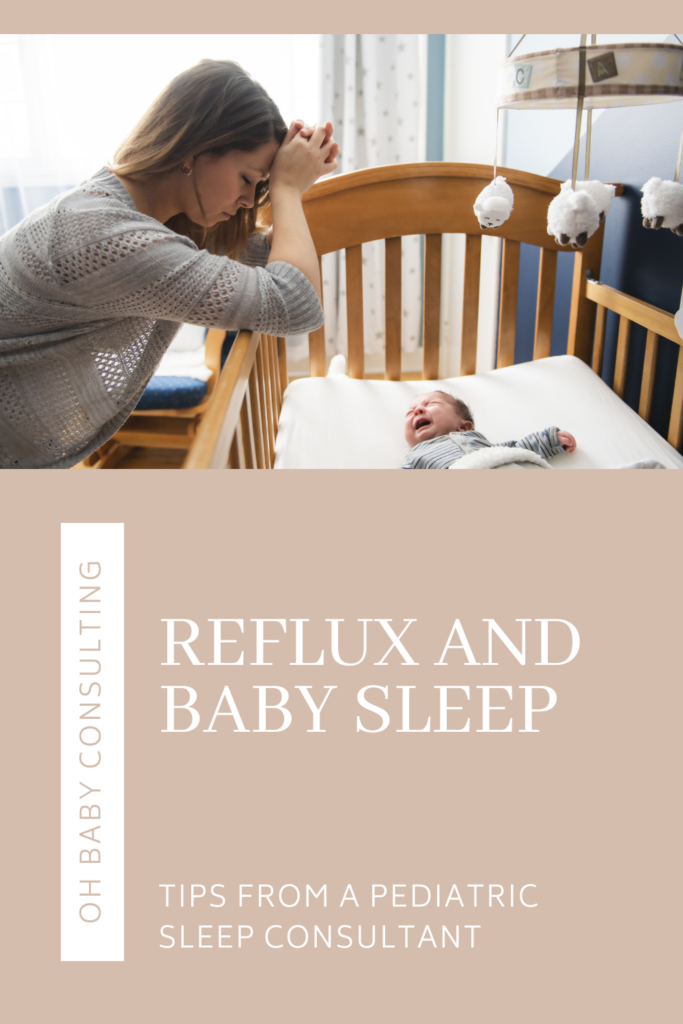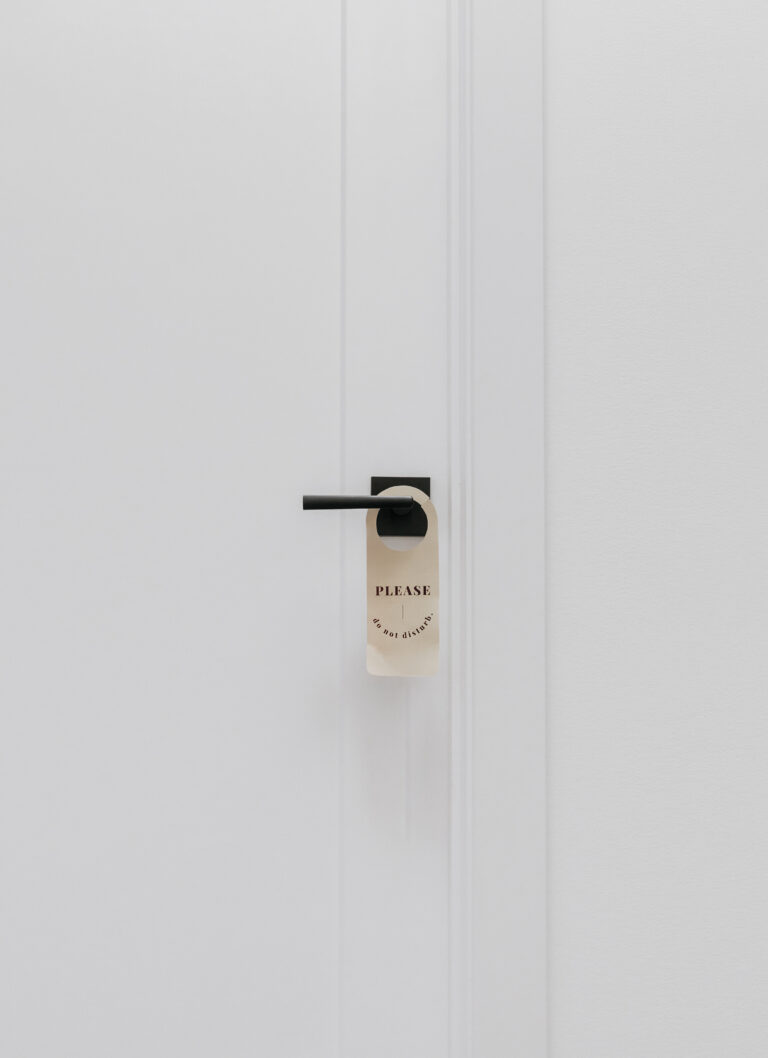Disclaimer: I am not a medical professional. My goal is simply to give you a brief understanding of reflux, debunk some myths, and offer some practical strategies as it relates to your baby’s sleep. Please always consult with your doctor about reflux and any other medical concerns.
If you’re wondering whether your baby’s sleep struggles are due to an underlying physical issue such as reflux, you’re not alone. Reflux is incredibly common among newborns and young infants due in large part to their anatomy.
Reflux can cause sleep struggles (because no one sleeps well when they’re in pain), so it’s best to sort out any diagnosed reflux issues before working on independent sleep or sleep training.
What is reflux?
A high-level explanation of reflux is when the stomach contents are pushed back up into the esophagus.
Due to the immaturity of the esophageal sphincter (the little flap that separates these two organs), nearly all babies experience some form of reflux. However, for many babies, there is no pain involved; they just spit up easily and are un-impacted. These babies do not need any type of treatment and are usually categorized as “happy spitters”.
But some babies do experience significant pain when the stomach acid enters the esophagus. These babies should be seen by a doctor for appropriate diagnosis, monitoring, and support.
How do I know if it’s painful?
According to Mayo Clinic, some things you might see if your baby has the painful form of reflux include:
- Forceful and painful spitting up
- Being extremely difficult to soothe
- Fussiness following feedings
- Arching away during feedings/refusing food
- Frequent coughs/congestion/wheeziness in the absence of an illness
- Poor weight gain
- Blood in their stool
As I mentioned, babies exhibiting these symptoms should be under the care of a doctor.
How can I help my child with reflux?
Even if your child does not exhibit signs associated with painful reflux, frequent spitting up is unpleasant and no fun for anyone. There are many things you can do to help decrease reflux incidences until your baby’s anatomy matures.
1. Feed your baby in an upright position
Keeping your little one’s head above their stomach will allow gravity to help keep the milk out of the esophagus.
2. Hold your baby upright for 20-30 minutes after feedings
Again, allow gravity to do some of the work here. Keeping your child upright after a feeding will be easier to achieve if you are following an “Eat, Play, Sleep” routine during the day where feedings are taking place after naps vs. right before.
3. Burp your baby more frequently
This will help your child to alleviate some of the gas bubbles that naturally build up when both milk and air is swallowed. You can try burping every 2-3oz or in between each breast.
4. Speak with your doctor about offering a probiotic
Studies have shown that some probiotics can help ease the discomfort associated with reflux and result in less crying.
Here’s what NOT to do:
1. Do NOT elevate your baby’s head during sleep
This one might come as a shock because many pediatricians and medical professionals actually recommend doing this. This advice is actually outdated and unsafe. The American Academy of Pediatrics (AAP) has reported that elevating the head of an infant’s crib is not effective in reducing reflux. It may also put your baby in a position that can compromise breathing and therefore is not recommended.
2. Do NOT lay your baby on their stomach to sleep before they have learned to roll
Many parents worry that placing their reflux baby on their back to sleep might result in them choking on their own spit up. However, this position does not increase the risk of choking, and is, in fact, safe. According to the AAP, “Sleep position does not increase the risk of choking and aspiration in infants, even those with gastroesophageal reflux, because infants have airway anatomy and mechanisms that protect against aspiration.”
To learn more about safe sleep practices and the reasons behind them, visit the blog on safe sleep.
3. Do NOT stress about independent sleep
When there is a true medical concern at play, the best course of action is to do whatever you need to do to get your baby sleeping safely while you navigate the reflux. Once you feel like your child’s reflux is well-controlled, they CAN become a great little sleeper!
What about other feeding challenges?
Feeding and sleep certainly go hand-in-hand, but feeding challenges do not preclude children from becoming great sleepers. In my experience, when sleep improves, feeding improves along with it!
A final note: While true reflux absolutely exists and can be incredibly painful & stressful, I have also seen many babies misdiagnosed with reflux when in fact, they were just massively overtired.
Speak with your pediatrician about beginning to work on independent sleep and you may just find the reflux resolves along with it!














